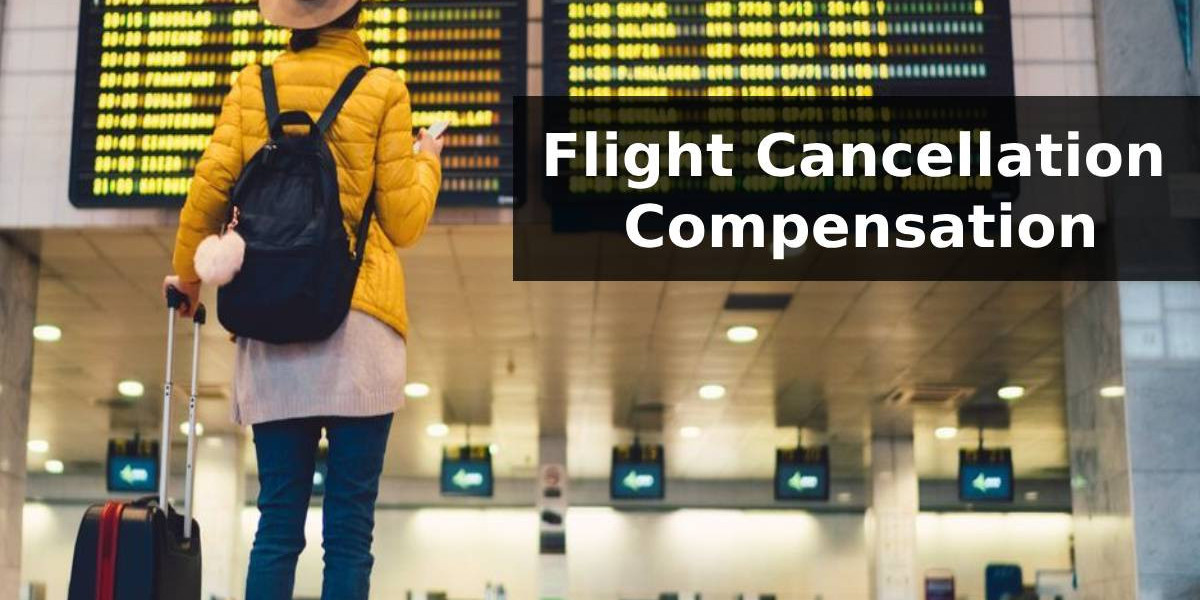Travelling by air can be exciting, but when your flight gets cancelled, it quickly turns stressful. Whether you're travelling for work, a holiday, or to visit family, a cancelled flight can cause missed plans, extra costs, and confusion. The good news is, you may be able to get flight cancellation compensation.
In this guide, you’ll learn how to handle a flight delay or cancellation, when you're entitled to compensation, and how to file a claim that gets approved.
What Is Flight Cancellation Compensation?
When an airline cancels your flight and it wasn’t your fault, they may owe you money. This is called flight cancellation compensation. Rules vary depending on where you’re flying, the airline, and why the flight was cancelled.
Some common reasons passengers receive compensation include:
Technical problems with the aircraft
Staff shortages
Late notice cancellations
Delays that cause missed connections
You usually won’t get compensation if the cancellation is caused by bad weather or other things outside the airline’s control.
When Are You Entitled to Compensation?
Not every flight cancellation qualifies for a payout. However, certain rules exist to protect passengers.
Flights Covered Under EU/UK Law (EU Regulation 261/2004)
If your flight departs from an EU or UK airport—or lands there on an EU/UK-based airline—you may be eligible under EU261.
To qualify:
Your flight is delayed by 3 hours or more at arrival, or
Your flight is cancelled within 14 days of departure and the airline fails to offer a suitable replacement
The amount of flight delay and cancellation compensation depends on the distance of the flight:
Up to 1,500 km: €250
1,500–3,500 km: €400
Over 3,500 km: €600
Flights in the United States
In the U.S., airlines do not have to pay compensation for delays or cancellations unless you are involuntarily bumped from an overbooked flight. However, they must refund your ticket if they cancel the flight and you don’t accept a rebooking.
Other Regions
Different countries have different rules. Some may offer passenger protection laws, while others may rely only on airline policies. Always check the terms and local regulations.
Common Reasons Airlines Deny Compensation
It’s important to know what doesn't qualify for compensation. Airlines do not have to pay if:
The cancellation was due to bad weather
There was air traffic control disruption
The cancellation happened due to a security risk
You were informed far in advance and given a rebooking
Even in these cases, though, airlines might still provide vouchers, meals, or hotel stays if the delay is long.
What to Do When Your Flight Is Cancelled
Let’s say you get the bad news: your flight is cancelled. Here’s what you should do.
Step 1: Speak to the Airline
Go to the customer service desk or call the airline. Ask why the flight was cancelled. This information is important later if you file a claim.
Ask the airline:
Can I get on the next available flight?
Will you cover meals or hotel costs?
Can I get a refund if I don’t want to rebook?
Step 2: Keep All Documents
Hold on to your:
Booking confirmation
Boarding pass
Any emails or texts from the airline
Receipts for food, transport, or hotel costs
These will help support your claim later.
Step 3: Track the Delay Time
If the delay lasts 3 hours or more and it wasn’t your fault, you may be owed flight delay compensation. Time is measured from your scheduled arrival time to the actual time you land.
How to File a Compensation Claim
Filing a claim may seem difficult, but it’s often a simple process if you follow the steps.
Step 1: Go to the Airline’s Website
Most airlines have a claims or feedback section on their website. Search for “claim compensation” or “customer service.”
Fill in your flight number, date of travel, and booking details. Include a short, clear message that explains the situation.
Example:
“My flight from London to Madrid (BA123) on 10 April was cancelled with less than 24 hours’ notice. I was rebooked on a flight the next day and arrived more than 5 hours late. I am requesting compensation under EU261.”
Attach any documents or receipts.
Step 2: Use a Compensation Service (Optional)
If you don’t want to deal with the airline yourself, you can use a company that files claims for you. They take a percentage if the claim is successful. Examples include AirHelp, SkyRefund, and others.
Only use trusted services, and read reviews before sharing your details.
Step 3: Be Patient but Persistent
Airlines can take a few weeks to reply. If you don’t hear back after 30 days, send a follow-up email. Keep copies of everything.
If the airline refuses your claim and you believe it’s valid, you can report them to:
The UK Civil Aviation Authority (CAA)
The European Consumer Centre (ECC)
Your country’s air travel regulator
Extra Costs: What Can You Claim?
You may also be able to claim extra expenses caused by the delay or cancellation, including:
Hotel stays
Meals and drinks
Taxi or transport costs
Phone calls and Wi-Fi if needed to make new plans
Always ask the airline first if they will cover these costs directly. If not, keep receipts and claim later.
How Long Do You Have to File a Claim?
Each country has its own deadline for making a claim:
UK: Up to 6 years from the flight date
EU: 2 to 5 years, depending on the country
Other countries: Varies—check local rules
It’s best to file as soon as possible while all your details are fresh.
Tips to Make a Strong Claim
Be clear and polite in your message
Include your flight number, date, and reason for the cancellation
Attach all proof, like tickets and receipts
Show how long you were delayed
Use simple language
Follow up if you don’t hear back
Airlines are more likely to pay when claims are well written and have solid proof.
What If You Miss a Connecting Flight?
If you miss a connection due to a delay or cancellation, the airline must help if all flights were booked together. This includes:
Putting you on the next flight
Offering meals or accommodation
Possibly paying compensation if the delay is long
If you booked separate tickets, you may not be covered. Always try to book connecting flights on one ticket.
Final Thoughts
Dealing with a cancelled flight isn’t fun. But if you stay calm and know your rights, you can often get flight cancellation compensation. In many cases, you can also recover costs linked to the delay.
To recap:
Understand your rights under local and international laws
Save all booking and travel documents
Contact the airline quickly and clearly
File a claim with complete details
Don’t give up if the airline pushes back
Whether it’s a flight delay, a last-minute cancellation, or a missed connection, you may be entitled to something more than just an apology.
Safe travels—and don’t let a cancelled flight ruin your journey.









